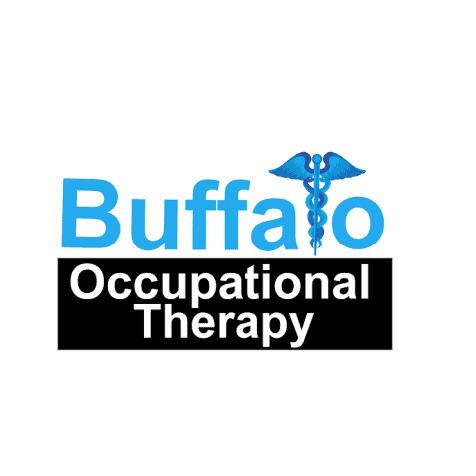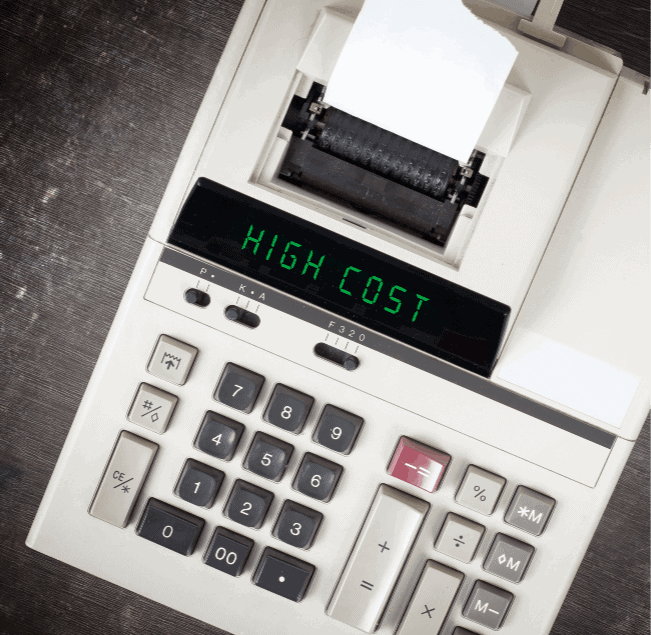“Plan for what is difficult while it is easy, do what is great while it is small.” – Sun Tzu
After an injury, sickness, or traumatic brain event, you may be experiencing difficulty in multi-tasking, planning, organizing your thoughts and responsibilities, or even find it is difficult for you to think through complex thoughts and ideas. It is very important not to overlook these symptoms or push them aside, early intervention to restore function and learn compensation strategies will ensure you can remain independent with everyday activities.
If you are experiencing difficult planning, you may also be having difficulty with other executive functions.
Your body is a machine that works in synergy with its many parts. If you are functioning at your optimal best, every organ, muscle, nerve, and cell are communicating seamlessly with one another. When your body is ‘off’, even a little bit, the entire machine is effected!
What affects executive function and planning abilities?
- Generalized weakness after the flu, hospital stay, or sickness
- General dementias (memory decline)
- Diagnoses specifically affecting the brain cells like Alzheimer’s, Parkinson’s, Lewy Body Dementia, Multiple Sclerosis, Stroke, and Traumatic Brain Injury
- A decline in selective attention, depression, increased stress
- Moving out of a familiar place and into an unfamiliar place (physical environment transition)
- Lack of social participation and increased seclusion
What are the types of executive functions that may be affected?
- Action – monitoring and self-regulating actions
- Memory – utilizing working memory and accessing recall
- Emotion – Managing frustrations and balancing your emotions
- Effort – Remaining alert, sustaining your energy, maintaining your speed
- Focus – Focusing, sustaining and shifting attention to tasks, multi-tasking
- Activation – Organizing, prioritizing, and initiating tasks or responsibilities
What problems do many of our patients see associated with planning, reasoning, and organization?
- Disorganized homes, messy, hoarding
- Losing track of bills and administration responsibilities
- Difficulty planning shopping trips and budgeting for items you need
- Arriving to appointments on time or forgetting them altogether
- Keeping a calendar
- Constantly feel rushed and pressured causing increased anxiety
- Increased anxiety and symptoms of depression
- Decreased desire to be around friends and family in fear that they will notice
- Decreased desire to have people over to their house because they don’t want to reveal there may be a problem
- Increased confusion and memory problems
Specific Problems We Help
Comprehensive Evaluation for Executive Function
Along with our typical comprehensive evaluation, we will also establish a baseline using the Pelmanism system. By using this approach and establishing a memory/recall baseline, we are able to objectively monitor your progress throughout your plan of care. Memory problems and forgetfulness can oftentimes be addressed through simple strategies and conditioning over time. We use a variety of assessment measures to ensure you are seeing the results we believe you will achieve.
Neurological Perspective Improving Executive Function
Neurocentric rehabilitation specialists understand the importance of starting at the source of movement and strength in order to yield the greatest and quickest results. We use many neurological-based therapy techniques such as neuromuscular re-education, neurodevelopmental techniques, proprioceptive neuromuscular facilitation, heavy work, and cross crawl combined with brain work and cognitive strategies to enhance memory, improve selective attention, and quicken your immediate recall. Endless research and evidence suggest cognition can be improved when applying the correct physical approach with brain work activity in a rehabilitation program.
Memory Interventions through Outpatient Rehabilitation
When you come to us for treatments to address memory problems and forgetfulness, it is important for you to understand that we use research-proven techniques to improve your attention, intention, recall, focus/concentration, and information retrieval abilities. True and long-lasting outcomes require specific physical exercises as well as memory training activities. Your brain is not separate from your muscles/movement – they work synergistically. You can’t improve one without the other because your nervous system is a complete system!
Some things you will do when coming to outpatient therapy for memory problems include:
- Pelmanism System
- Heavy Work
- Physical agility and physical reaction time training
- Problem-solving tasks requiring brain and body working together
- Timed calculation and visual perceptual worksheets
- Neuromuscular Re-education exercises and activities
Ensure you are given a comprehensive evaluation by your therapist!
It should include objective assessments, a work-up of upper and lower body strength and range of motion, a screen for reaction time and coordination, a cognition screen to ensure your memory has not been affected by decreased mobility, and a conversation or perceptual screen regarding your fear associated with falling.
Commit yourself to at least 6-8 weeks of outpatient therapy after discussing the plan with your therapist.
Improvement takes time, especially when improving your memory! You can’t improve without a commitment to a plan. The biggest challenge people have is that they expect instant results without a specific process. Re-wiring your brain and body through neuroplasticity and improving the speed at which your nerves communicate with one another takes time, patience, and commitment to a plan! Addressing memory problems and forgetfulness is a medical process!
Follow the Home Exercises Program (HEP)
Your therapist will give you a home exercise program including exercises, stretches, and brain work to promote new motor habits and help improve your brain’s ability to process information and focus on recalling the information you have stored in your short term memory.
Don’t Rush yourself through activities, planning, or organization.
Giving your brain the time it needs to process and retrieve information will benefit you in the long run!
Ask questions!
Our outpatient rehab program is unique and educational. We want to equip you with the answers you are seeking and will do our best to give you the most current information! Be an active part of your therapy program!
Establish systems and routines so that your brain can thrive!
Learn compensatory strategies taught by your rehab specialist
Are you facing a specific diagnosis or condition effecting your functional performance?
Check out some examples of conditions we treat through outpatient rehabilitation!
Why choose Buffalo Occupational Therapy?
Buffalo Occupational Therapy works with you one-on-one to create a treatment plan that will meet your needs, accomplish your desired outcomes, and restore your hope in recovery.
Buffalo Occupational Therapy practitioners are committed to maintaining current competencies, meeting monthly continuing education goals, and being well-versed in the latest evidence-based, research-driven treatment models in order to offer you the best treatment possible.
Specialized occupational therapy practitioners are accessible to their patients, invested in producing treatment plans that will produce results, maximize time spent, and offer you hope for recovery.
Buffalo Occupational Therapy is currently the first and only Neuro-centered adult outpatient occupational therapy practice specializing in neurological rehabilitation, functional performance, and rehabilitation for older adults.
Helpful Page Definititions
Instrumental Activities of Daily Living (IADLs)
Instrumental Activities of Daily Living (IADLs) are essential for independence in life roles and required for aging in place. There are 8 activities core activities for independence including cooking, cleaning, communication, taking and managing medication, handling your personal finances, transportation and community mobility, shopping
Cooking - The ability to follow a recipe and having the stamina to prepare a meal for yourself and/or your family
Cleaning - The ability to perform light housekeeping including making your bed, doing your laundry, washing the dishes, taking out the trash, vacuuming, sweeping, cleaning your bathroom, etc.
Communication - The ability to use the telephone, the computer, have conversations with people (familiar and strangers), communicate your needs clearly.
Taking medication - The ability to sort and organize your medication or determine a compensatory method to do so as well as taking the appropriate dosage at the appropriate time.
Personal Finances - The ability to establish an organization method to understand financial responsibilities and pay your bills on time.
Transportation - Whether you are driving, calling for a driving service like a taxi or Uber, or taking public education. You must have a defined action plan for community mobility and transportation.
Shopping - The ability to plan transportation, plan a grocery/clothing list of needs for yourself and your home, have the stamina to collect your items at the store, and be able to get them into your house.
Comprehensive Evaluation
Occupational therapists treat the entire person. Much like your primary care physician, we were required to learn elements of the entire body so that we could treat holistically (a one stop shop). Because of this, your outpatient rehabilitation specialist will perform an evaluation that assesses the following things:
- Personal history
- Who are you? What do you do? What makes you tick? Why are you seeking outpatient therapy?
- Physical function (upper body and lower body)
- Strength, range of motion, and flexibility
- Neuromuscular function (brain to muscle communication)
- Coordination, speed, agility, and reaction time
- Cognitive and Mind health
- Short term memory, recall, information processing, and perception of illness
- Occupational Inventory (Activity and role inventory)
- Roles you play like a caregiver, spouse, parent, employee, etc.
- Mobility inventory like the places you need to go
- IADL inventory and what activities are required for you to be independent
- Other activities that are important to you
Muscle Imbalance
Your body is complex and should be working synergistically with all of its parts. When some muscles have become weaker while others remain strong, an imbalance occurs which causes decrease balance, standing tolerance, and joint stability.
Heavy Work
Heavy work is also known as resistance training and can utilize isometric and isotonic movements with or without external weights while focusing on eccentric and concentric muscle contractions. By partnering heavy work with visual perceptual tasks and neural recruitment visualization, increased carryover and recovery is experienced.
Visual Perception
We incorporate visual perceptual elements into many treatments to enhance perception, balance, safety, cognition, memory, recall and neural excitation. Some areas of visual perception include form constancy, visual discrimination, figure-ground perception, visual closure, visual memory, and visual sequential memory.
Neuromuscular Re-education
NMRE is used by neurocentric occupational therapists to improve communication between your muscular system and nervous system. By promoting this stream of communication, you close the circle of recovery. Without NMRE, you can have the biggest muscles in the world and still experience mobility deficits due to poor reaction time, coordination, and mixed signals.
Fine Motor Skills
Fine motor skills are a fancy way of saying functional wrist, hand, and finger movement. Many people require fine motor training after a stroke, traumatic brain injury, hand injury, neuropathy, or throughout the progression of a progressive diagnosis.
Fine motor skills include open thumb web space, bilateral coordination, thumb IP joint flexion, finger isolation, upper body stabilization, strength, and mobility, dexterity, prehension, intrinsic muscle strength, precision, motoric separation of the two sides of the hand, motor control, pincer grasp, pinch strength, grip strength, and the ability to grasp and release.
Commitment
The biggest obstacle you will face to your rehabilitation is oftentimes yourself. A crucial element to our approach to rehabilitation is a formal commitment of both you and your therapist to the plan of care, a home exercise program, a positive outlook, and follow-through.
Every patient we see is unique. Even with the same diagnoses, you may be experiencing an entirely different set of symptoms. The human body is not an exact science, but we are dedicated to giving you one-on-one, specialized attention. This means your therapist will dedicate time, outside of the workplace, to understanding how to address your specific needs as quickly and efficiently as possible! Through education, research, textbooks, and understanding best practices, your therapist will go above and beyond. We expect the same level of commitment from you! You don’t need to research, but we would ask that you commit to the plan of care set! What we do is methodical, purposeful, and takes time — but outcomes will come!
Remember, it takes time to see results, re-train your body and brain, eliminate chronic pain, and restore function. Many times your injury or ailment did not appear overnight, and likewise, will not disappear in 1-2 sessions.




